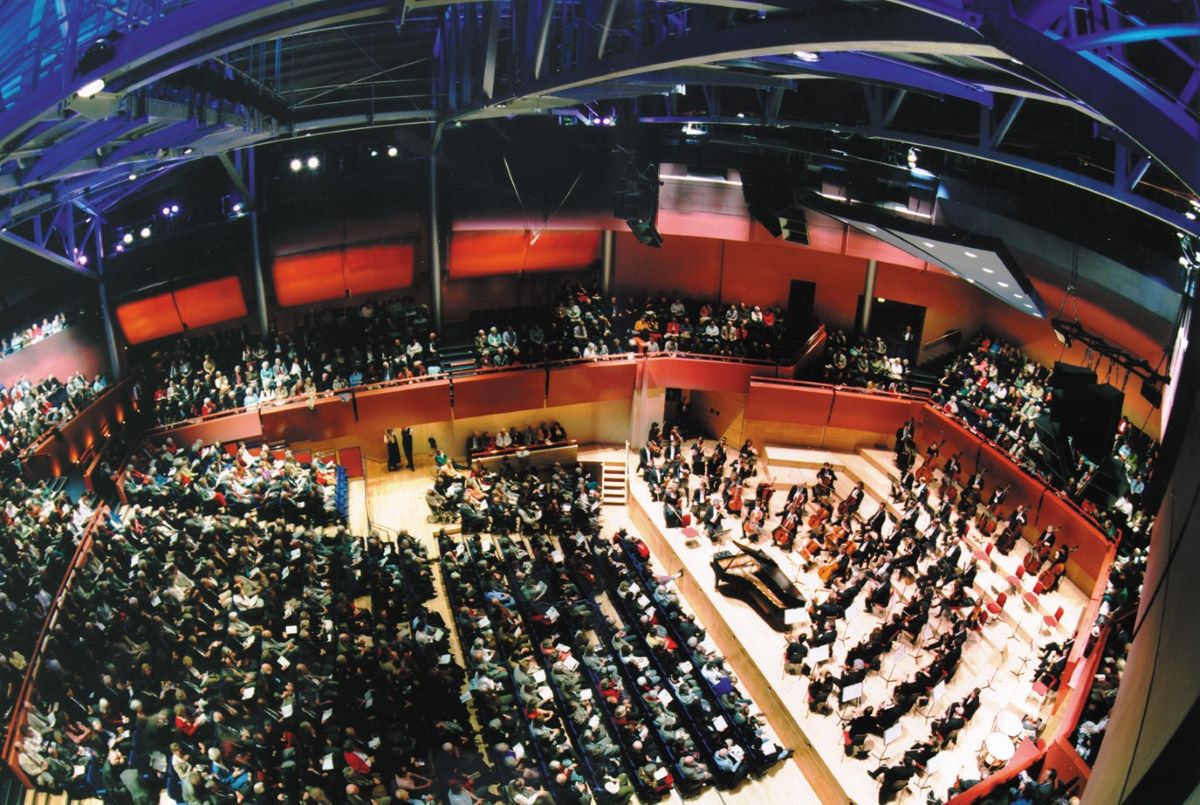
As a suburban town in the commuter belt of Greater London, Basingstoke might not be the first place that comes to mind when you think about arts and culture. Best known as a Hampshire market town, expanded to accommodate overspill from the capital – and home to numerous corporate headquarters like Sun Life, Lilly and the AA – the town is often viewed through a business-centric lens.
It’s easy to assume that the 185,000 or so residents of Basingstoke and the wider borough get their cultural fix by hopping on a train to London, while visitors simply pass through on their way to more culturally significant destinations.
But this assumption underestimates the vibrant cultural output that Basingstoke has to offer. Contrary to the cliché of its reputation as just another commuter town, Basingstoke punches well above its weight when it comes to arts and culture.
It’s time to reframe how we see the UK’s network of suburban towns and smaller cities, recognising that their cultural offerings play a vital role in enriching lives, fostering economic growth and contributing to the country’s international reputation.
Pillars of cultural excellence
Two key venues – The Anvil and The Haymarket – serve as cornerstones of Basingstoke’s cultural identity.
The Anvil, a 1,400-seat concert hall, is regarded as one of the top five concert halls in the UK. Over the past 30 years, this venue has sold over five million tickets, delivered thousands of shows and hosted some of the world’s greatest musicians. It’s a venue that consistently attracts audiences from outside the area, contributing significantly to the local visitor economy.
The Haymarket, a more intimate 400-seat theatre housed in a Grade II-listed building offers a space for drama, with an emphasis on family shows and local performances.
Beyond the artistic programmes, Anvil Arts – the National Portfolio Organisation responsible for running them – actively contributes to the local community through a range of engagement programmes. These include nearly 10,000 places in school projects, concerts featuring some 3,000 young performers and initiatives aimed at inclusivity such as relaxed performances for people with autism and other disabilities.
The economic power of culture
For many years, culture has been seen as something that requires constant public funding, subsidy and bail out to survive. But this view misses a critical truth: culture drives significant economic value.
An independent economic impact assessment undertaken earlier this year by BOP Consulting for 2023/24 revealed that Anvil Arts generated a net economic impact of £7.3m in Basingstoke and Deane, equating to £14 return for every £1 of public investment.
This equates to £4.2m GVA (Gross Value Added) and 130 jobs in addition to its own staff, reaffirming the important role the arts play in contributing to the visitor economy and driving economic growth.
Anvil Arts’ programme brings 200,000 people a year into the town centre, two-thirds of whom say they would not otherwise visit. Importantly, a significant portion of this audience comes from outside the town. In 2023, 64% of Anvil Arts attendees were non-locals, many of whom spent more on food, drinks and accommodation compared to local audiences.
Weathering financial challenges
Despite the clear economic and cultural benefits, the arts sector in Basingstoke – like the rest of the country – has faced severe financial challenges in recent years, with public investment significantly cut from both the borough and county council. However, Anvil Arts has managed to stabilise its operations – nearly 70% of its income comes from its own operations.
This growth in self-sufficiency should not be viewed as a reason to reduce public support for the arts, but rather as proof that public investment yields valuable return.
As Anvil Arts’ economic impact assessment shows, the cultural sector is not a financial drain; it’s a driver of growth and opportunity. Every pound invested circulates through the local economy, supporting jobs, businesses and the town’s overall development.
A vision for the future
The cultural sector in many similar towns up and down the UK has demonstrated resilience, creativity, bravery and – in Basingstoke’s case – a strong economic foundation. But looking forward, further investment and innovation are needed to continue this trajectory.
Whether creating more opportunities for local communities to engage, fostering new partnerships outside traditional models, or innovating across artistic programmes, secondary activities and fundraising, there is opportunity to build on cultural success to drive both social and economic impact.
Basingstoke is proof that culture should not be underestimated in seemingly unfashionable suburban towns. Whether an Arts Council priority place or not, the arts can flourish, enrich lives and fuel economic growth.
Culture is not a luxury or an ‘add on’ – it’s a sound investment from which everyone benefits.
